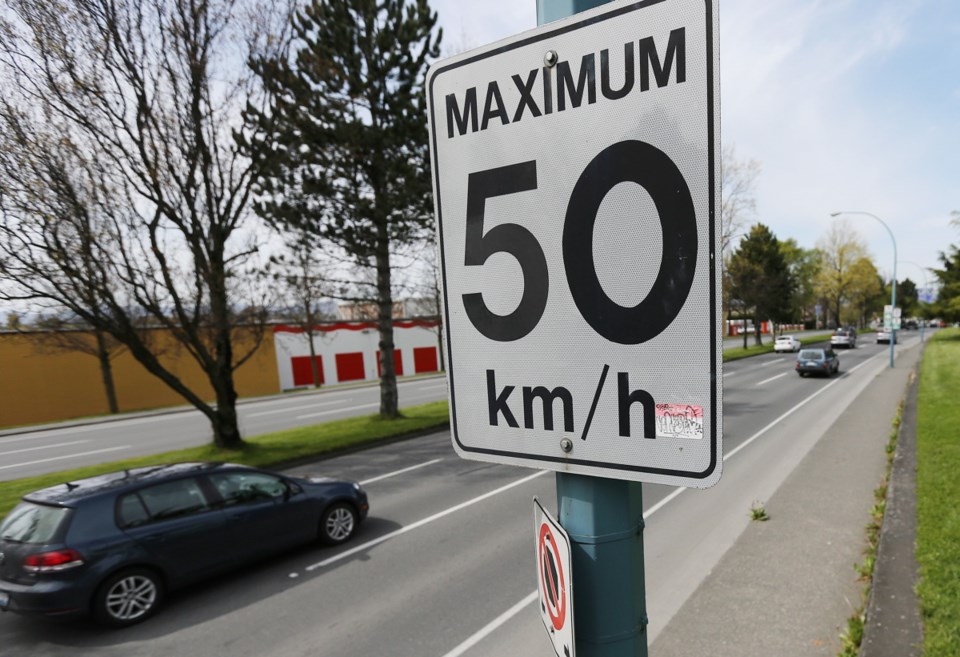VANCOUVER — B.C. municipalities are asking the provincial government for the power to institute blanket speed limits in residential areas.
A resolution making the request was endorsed on Wednesday by delegates at the Union of B.C. Municipalities convention, with the idea of lowering speed limits to make smaller streets with no centre lines safer for both pedestrians and vehicles.
The City of Vancouver, which put forward the resolution, voted in favour of moving ahead with a pilot project to lower the speed limit on certain side streets from 50 kilometres an hour to 30 km/h.
“Increasingly, we’re finding with the lack of road space, more people are using our roads for things other than automobiles, and this opportunity to safely reduce street speeds to 30 km/h will have huge impacts on livability and life safety,” said Vancouver Coun. Pete Fry.
Victoria Mayor Lisa Helps threw her support behind the resolution.
“I think the strength of this motion is it’s simply an ask to the minister to authorize local governments to make decisions that are best for our residents and to respond to local circumstances,” she said.
There was some concern that a blanket speed limit could be confusing for drivers, particularly if they are travelling on a street that crosses municipal lines and the municipalities have different rules.
Coquitlam Coun. Dennis Marsden said different blanket speed limits could not only cause confusion, but increase congestion, cost municipalities money and require extra enforcement.
Nonetheless, the resolution passed.
In a special resolution, the UBCM executive reminded the province that local governments should be consulted on matters that affect them. This was a response to concerns from some municipalities that some new provincial programs and processes don’t reflect key principles in the Community Charter — namely, that local governments are recognized as orders of government.
Some examples of initiatives that have caused consternation in communities include a caribou recovery program and a dock management plan on the Sunshine Coast.
Strathcona Regional District Electoral Area C director Jim Abram said he fully supports the resolution.
“We talk about legislation, funding, all these different kinds of things, but all of them come back to consultation, co-operation, collaboration with our senior levels of government — and our biggest problems always come from lack thereof,” Abram said. “Let’s keep it on the straight and narrow, and before anything gets enacted, talk to us.”
It passed almost unanimously.
Delegates also passed a motion from the Cariboo Regional District calling on the province to expedite a cannabis excise tax revenue-sharing agreement with local governments. Similar resolutions have been endorsed at three previous conventions.
The province has said that cannabis taxation is not expected to generate significant provincial revenues. It said discussions will take place after costs are known.
“The main issue in all of this is [that] while local governments have to deal with all of the administration and regulation and associated costs of legalized cannabis, we are not seeing a single penny when it comes to the tax revenues from cannabis,” said Cariboo Regional District director Angie Delainey.
The UBCM had called, in the short term, for 40 per cent of the projected excise tax revenue to be shared with local governments for two years, with money distributed on a per capita basis.
After that, the province could keep the same framework or increase the provincial sales tax on cannabis, with revenue going to local governments instead of excise tax.



